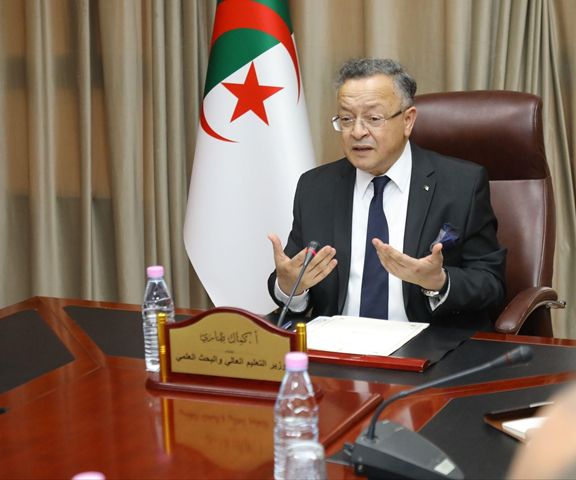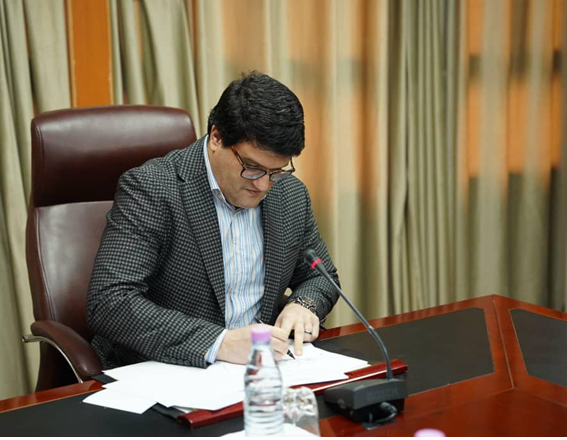On the afternoon of 7 January 2026, Mr. Kamel Baddari, the Minister of Higher Education and Scientific Research, visited the Scientific and Technological Hub, Martyr ŌĆ£Abdelhafid IhaddadenŌĆØ in Sidi Abdellah, to attend an information day about ŌĆ£Job offers at the Ministry of National DefenceŌĆØ, for graduates of the National Higher Schools of Artificial Intelligence and Mathematics in Sidi Abdellah.┬Ā
In his speech on the occasion, Mr. Kamel Baddari, the Minister of Higher Education and Scientific Research, praised the enthusiasm of the students from the national higher schools within the Scientific and Technological Hub for this exhibition, which enabled them to participate and sign employment contracts with various PeopleŌĆÖs National Army directorates and services, reflecting ŌĆ£the high level in the fields of science, advanced technology, computer science, and mathematics that are providedŌĆØ.
As indicated by the minister, this partnership is part of ŌĆ£the development vision outlined by the President of the Republic, Mr. Abdelmadjid Tebboune, who prioritised science, technology, and knowledge related to the innovative economyŌĆØ.
On this occasion, exhibition spaces have been dedicated to showcase the services, directorates, and schools of the PeopleŌĆÖs National Army, along with the job opportunities they offer. This includes the Central Directorate of Digitisation and Information Systems, the Directorate of the Electronic System, the Cyber Defence Service, and the Security Monitoring Systems.










